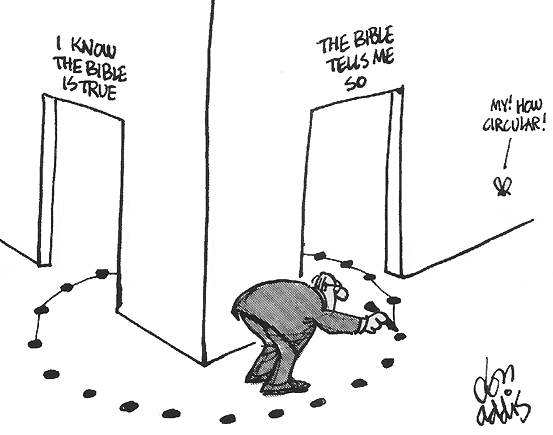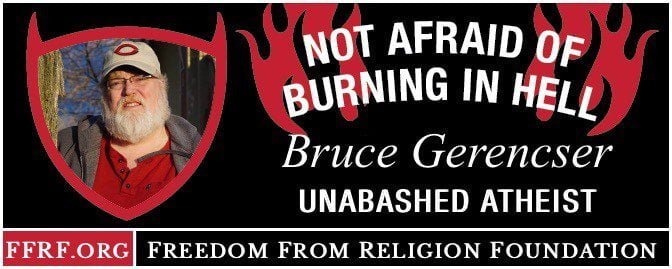
Repost from 2015. Edited, updated, and corrected.
Most Evangelical preachers and church members believe that the Bible they carry to church on Sundays is the inspired, inerrant, infallible Word of God. If you ask them if the Bible has any errors, mistakes, or contradictions, they will likely say, absolutely not! While they know that their Bible is a translation of ancient Hebrew and Greek manuscripts, they assume there is a perfect word line from God to the writers of the manuscripts to the translations they use.
Ask college/seminary-trained Evangelical pastors if the Bible has any errors, mistakes, or contradictions, and they will likely not say anything at first, and then will say, well, you need to understand ___________________________ (insert long explanation). They will likely tell you that modern translations are faithful or reliable, or that there are no errors, mistakes, or contradictions on any matter that is important to salvation. If you press them hard enough, they will tell you that no translation is perfect. (Remember, inerrancy demands perfection.) At about this point in the discussion, Evangelical pastors will say, I DO believe the original Greek and Hebrew manuscripts are inerrant (perfect, without error, mistake, or contradiction).
The next obvious question is this: so where are the original manuscripts? Well, uh, l-o-n-g pregnant pause, the original manuscripts don’t exist, the Evangelical pastor says. That’s right, the original manuscripts don’t exist. No one has ever seen or read the “original” manuscripts of the Bible. In fact, most of the extant manuscripts are dated hundreds and thousands of years after the events they record. According to Wikipedia, the oldest Old Testament manuscript (a fragment) dates back to the 2nd century BCE and the rest of the Old Testament manuscripts are dated from the 3rd century CE to the 11th century CE. Most of these manuscripts are NOT written in Hebrew.

But what about the Dead Sea Scrolls? Uneducated Evangelical church members erroneously think the Dead Sea Scrolls “prove” the Bible is the Word of God. Here is what Wikipedia says:
The Dead Sea Scrolls are a collection of 972 texts discovered between 1946 and 1956 at Khirbet Qumran in the West Bank. They were found in caves about a mile inland from the northwest shore of the Dead Sea, from which they derive their name. The texts are of great historical, religious, and linguistic significance because they include the earliest known surviving manuscripts of works later included in the Hebrew Bible canon, along with extra-biblical manuscripts which preserve evidence of the diversity of religious thought in late Second Temple Judaism.
The texts are written in Hebrew, Aramaic, Greek, and Nabataean, mostly on parchment but with some written on papyrus and bronze. The manuscripts have been dated to various ranges between 408 BCE and 318 CE…
Due to the poor condition of some of the Scrolls, not all of them have been identified. Those that have been identified can be divided into three general groups: (1) some 40% of them are copies of texts from the Hebrew Bible, (2) approximately another 30% of them are texts from the Second Temple Period and which ultimately were not canonized in the Hebrew Bible, like the Book of Enoch, Jubilees, the Book of Tobit, the Wisdom of Sirach, Psalms 152–155, etc., and (3) the remaining roughly 30% of them are sectarian manuscripts of previously unknown documents that shed light on the rules and beliefs of a particular group or groups within greater Judaism, like the Community Rule, the War Scroll, the Pesher on Habakkuk and The Rule of the Blessing.
So much for the Dead Sea Scrolls “proving” the Bible is the Word of God.
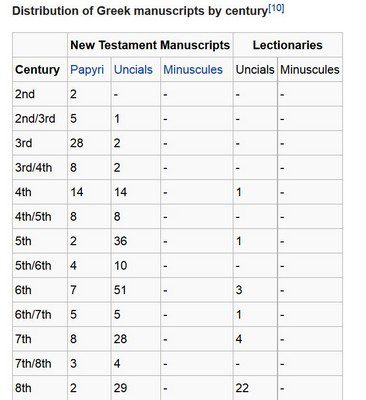

The oldest New Testament manuscripts date back to the 2nd century CE. Most of the extant manuscripts are dated from 9th century CE forward. Here is what Wikipedia says about the New Testament manuscripts:
Parts of the New Testament have been preserved in more manuscripts than any other ancient work, having over 5,800 complete or fragmented Greek manuscripts, 10,000 Latin manuscripts and 9,300 manuscripts in various other ancient languages including Syriac, Slavic, Gothic, Ethiopic, Coptic and Armenian. The dates of these manuscripts range from 125 CE (the John Rylands manuscript, P52; oldest copy of John fragments) to the introduction of printing in Germany in the 15th century. The vast majority of these manuscripts date after the 10th century. Although there are more manuscripts that preserve the New Testament than there are for any other ancient writing, the exact form of the text preserved in these later, numerous manuscripts may not be identical to the form of the text as it existed in antiquity. Textual scholar Bart Ehrman writes: “It is true, of course, that the New Testament is abundantly attested in the manuscripts produced through the ages, but most of these manuscripts are many centuries removed from the originals, and none of them perfectly accurate. They all contain mistakes – altogether many thousands of mistakes. It is not an easy task to reconstruct the original words of the New Testament….”
As you can see, there are no originals. Any talk of inerrant originals is just a smokescreen that hides the fact the extant manuscripts and EVERY Bible translation is errant. Any Evangelical who says that the Bible is inerrant in the originals is making a statement that cannot be proved. Every college/seminary trained-Evangelical pastor knows this, but few of them are willing to tell their congregations. Why? Why not tell church members the truth, the whole truth, and nothing but the truth? Preachers fear that their congregations will lose “faith” in the Bible and that the Bible will lose its authority if they tell them the truth. They would rather lie — and they ARE lying if they don’t tell their congregation the facts about the origin, translation, and text of the Bible — than have people doubt the Bible or God.
If there are no inerrant manuscripts, then there can be no inspiration. Most Evangelicals believe that God inspired (breathed out) the Bible. If you ask Evangelical church members exactly WHAT God inspired, they will likely point to their Bible. Ask Evangelical pastors the same question and they will likely start praying for the rapture to happen immediately. Why? Because the Evangelical doctrine of inspiration is based on the notion that the Bible is inerrant in the original manuscripts. Since there are no original manuscripts, and there are thousands of variations in the extant manuscripts and translations, then there is no such thing as an inspired Bible. At best, all that Evangelicals have is a flawed, errant translation of a flawed, errant, ancient manuscripts. Inerrancy and inspiration, as defined by Evangelicals, are myths, lacking any proof whatsoever.
This does not mean that the Bible has no value, but understanding that the Bible is not an inspired, inerrant text keeps a person from giving the Bible supernatural, God-like power. It may be a good book, a useful book, an inspirational book, but it is not a book that is straight from the mouth of God to our ears.
Our culture is awash with men and women who say they speak for the Christian God. What is the one belief that these speakers for God have in common? That the Bible is the inspired, inerrant Word of God. Every Sunday, Evangelical Joel Osteen, pastor of the largest church in America, leads his congregation in this:
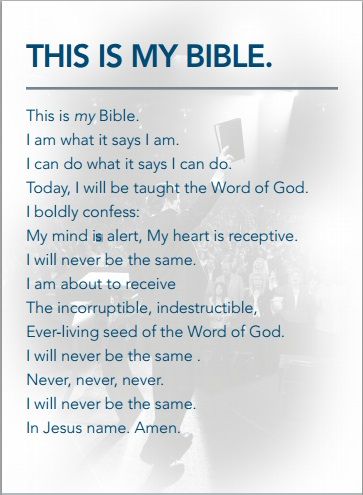
The culture wars that continue to rage in the United States are based on the belief that the Bible is the inspired, inerrant Word of God. When Evangelical culture warriors quote proof-texts from the Bible, they believe they are speaking the very words of God — in American English of course. What they are really speaking are the words of an errant, fallible text that may or may not be the words of God/Jesus/Moses/Paul/Peter/James/John — to name a few. Since the original manuscripts no longer exist, it is impossible to know if the words of the Bible are God’s words. And even if the original manuscripts did exist, how could anyone prove that they were the very words of God? Would there be an endorsement statement on the last page that said, This is God and I approve of these words? Of course not.
The Evangelical Christian says, the pastor says, the denomination says, the Bible says, but there is no way of knowing what God said. And this is why the foundation of Christianity is not the Bible but faith.
Let me conclude this post by illustrating how pervasive is the belief that the Bible is inerrant/inspired. The following Gallop Poll charts tell a depressing story about how Americans view the Bible:
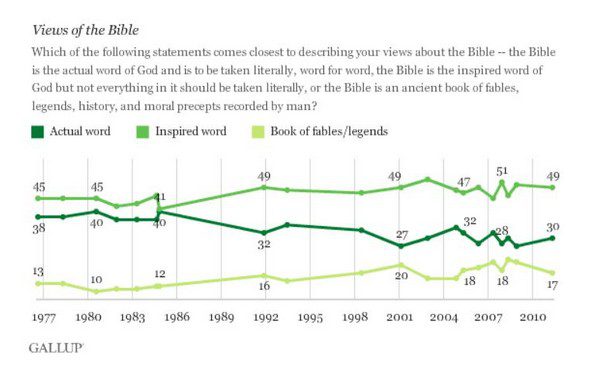
The percentage of Americans taking a literal view of the Bible has declined over time, from an average of 38% from 1976-1984 to an average of 31% since. However, highly religious Americans — particularly those of Protestant faiths — still commonly believe in a literal interpretation of the Bible.
In general, the dominant view of Americans is that the Bible is the word of God, be it inspired or actual, as opposed to a collection of stories recorded by man. That is consistent with the findings that the United States is a predominantly Christian nation and that Americans overwhelmingly believe in God.
Perhaps it is time for Christian churches to stop studying the Bible for a year so they can focus on reading and studying a few of Dr. Bart Ehrman’s books. Of course, if pastors did this they might risk being fired because their congregations would know that they’ve been lying to them about the Bible — and it IS a lie to omit facts about the origin, nature, and history of the Biblical text.
Until Evangelicals are disabused of their errant beliefs about the Bible, they will continue to arrogantly think that they have THE truth, that their God is the one, true, living God, and that the words of the Bible are God directly speaking to them. Until they understand that the Bible is not what they claim it is, there is no hope of having rational discussions with them. The Evangelical position can be summed up like this: God said it, end of discussion.
Notes
Some groups take inspiration and inerrancy a step farther and say that the King James Bible is the inspired, inerrant, infallible Word of God. The followers of Peter Ruckman even believe the italicized words added by translators to improve the reading and understanding of the King James translation, are inerrant and inspired. Ruckmanites believe the italicized words are an advanced revelation given to the translators by God.
Some Evangelicals believe that God has preserved his Words down through history. These Evangelicals admit that the original manuscripts do not exist, but they believe God, down through the centuries, has magically preserved (kept perfect) his Word, and that the King James Bible is the preserved Word of God for English-speaking people.
If you want a complete, detailed understanding of what most Evangelicals believe about the inspiration and inerrancy of the Bible, please read the 1978 Chicago Statement on Biblical Inerrancy. Here is a Who’s Who list of Evangelical scholars who signed the Chicago Statement.
Bruce Gerencser, 66, lives in rural Northwest Ohio with his wife of 45 years. He and his wife have six grown children and thirteen grandchildren. Bruce pastored Evangelical churches for twenty-five years in Ohio, Texas, and Michigan. Bruce left the ministry in 2005, and in 2008 he left Christianity. Bruce is now a humanist and an atheist.
Connect with me on social media:
Your comments are welcome and appreciated. All first-time comments are moderated. Please read the commenting rules before commenting.
You can email Bruce via the Contact Form.

